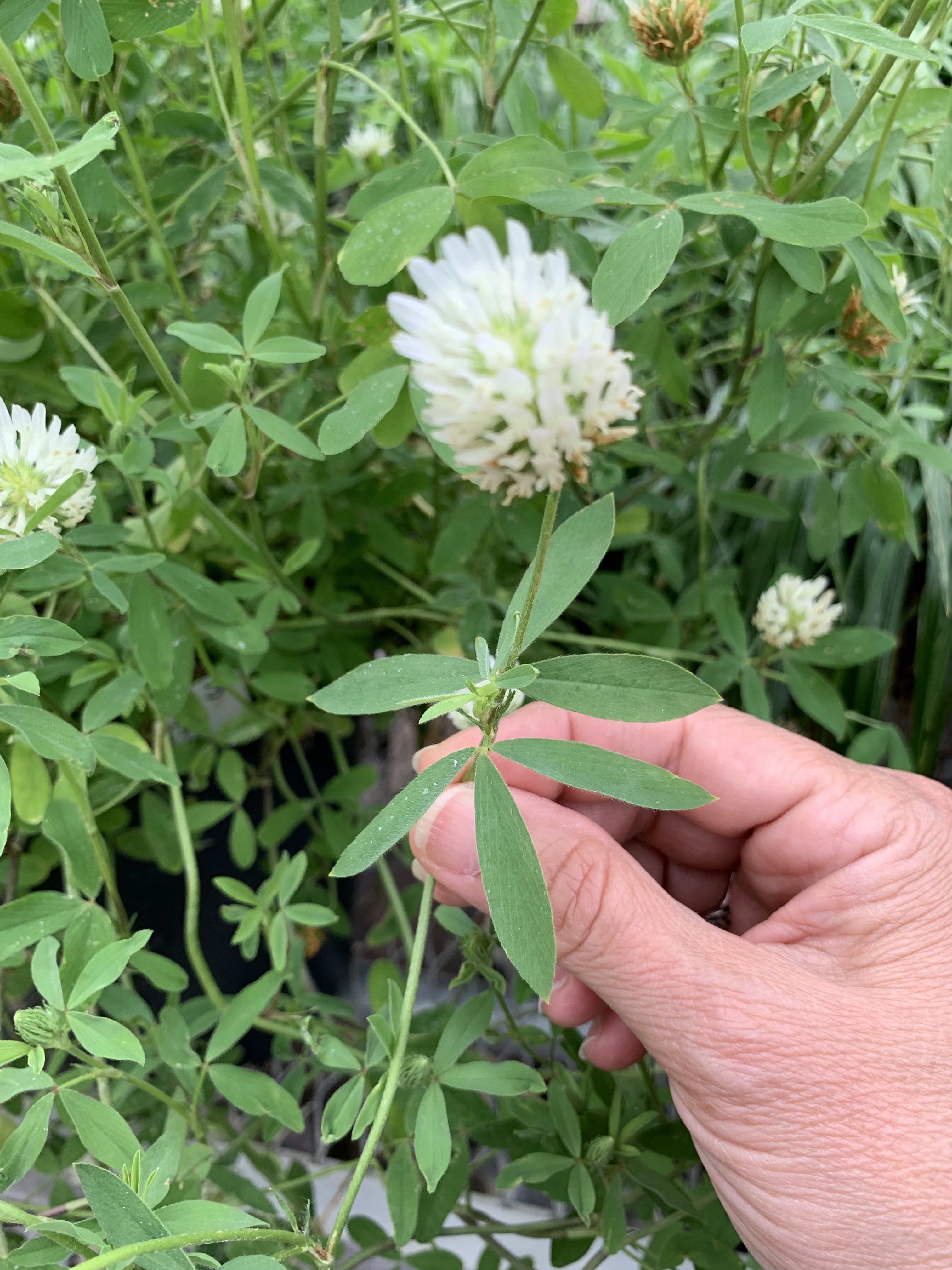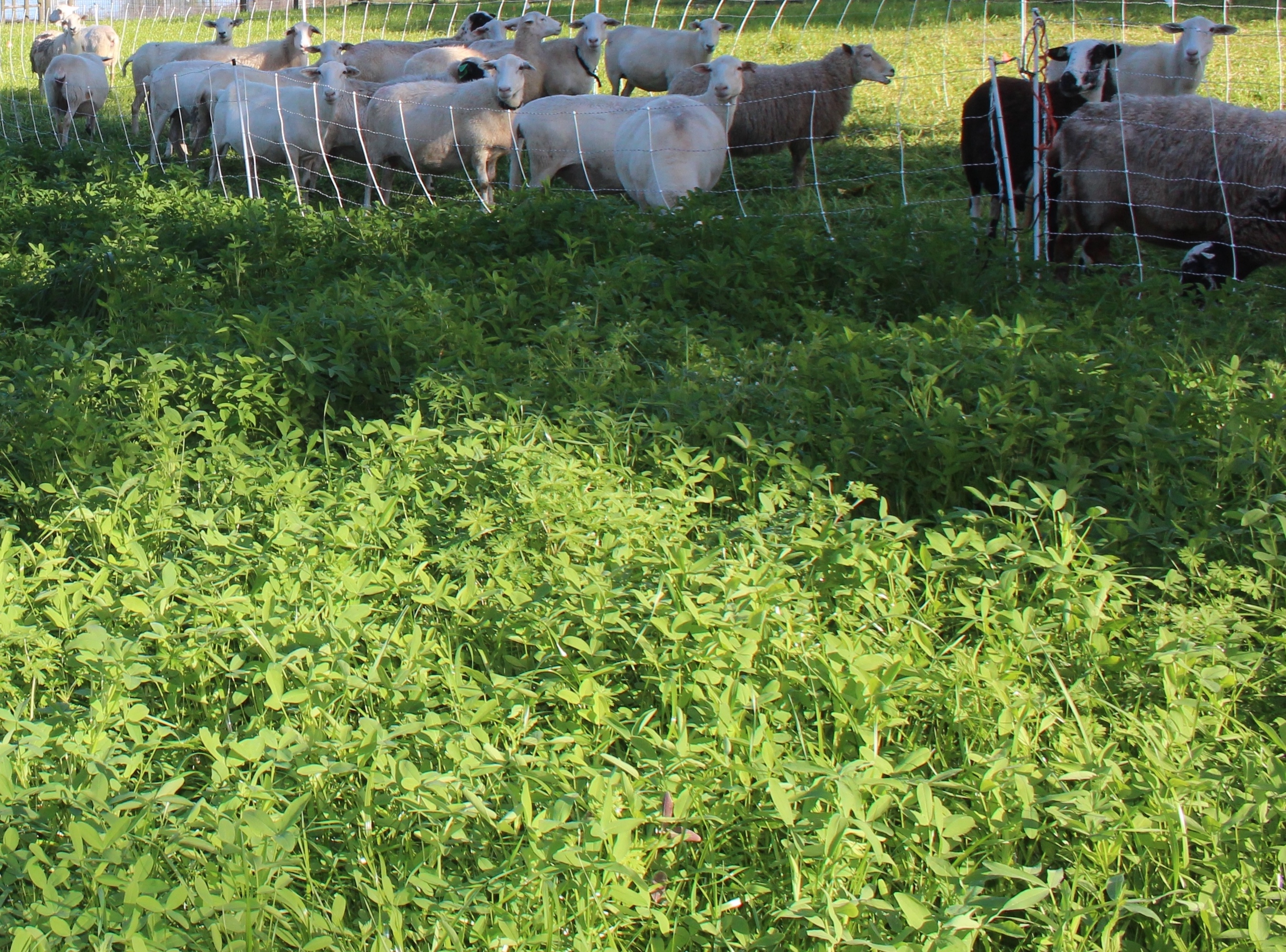| Scientific name: | Trifolium alexandrinum |
| Cultivars: | Frosty (has improved cold tolerance), CW9092, bigbee |
| Origin: | Middle east near Syria and Egypt (Nile delta) |
| Growth Habit: | Upright, 2 to 3 ft tall, fast growing |
| Life Cycle: | Summer annual |
| |
| Use |
| |
| Production: | 3,000 to 5,000 lb/acre (1.2 to 2.7 tons DM/acre) |
| Nutritive Value: | Non-bloating legume, medium to high crude protein and digestibility |
| |
| Identification |
| |
| Seed Head: | Flowers are yellowish-white that make a dense clustered heads. |
| Seed: | 150,000 seeds/lb Inoculate with proper N-fixing bacteria type (if seed is not coated or pre-inoculated). |
| Shoot: | Regrowth is from basal shoots |
| Leaf: | Trifoliate, no petiolule; elongated leaflets |
| |
| Adaptation |
| |
| Soil: | Loam, clay loam, tolerance to poor drainage and salinity, river bottoms, flat woods |
| pH: | 6.5 to 8.0 |
| Moisture: | Tolerates temporary flooding (4 to 5 days) |
| Temperature: | Lacks cold tolerance, least winter hardy of all true clovers, will winter kill in WI |
| Other: | Use inoculant (R type) for berseem and crimson clover |
| |
| Establishment - Management |
| |
| Seeding rate: | 10 to 15 lb/acre (alone); 5 to 10 lb/acre (mixes) |
| Seed cost: | $2.5/lb; $25 to 40/acre (alone); $12 to 25/acre (mixes) |
| Planting date: | Jul 15 to Aug 15 (southern WI), or until Aug. 5 (north) |
| Planting depth: | 1/4 to 1/2 inch |
| Frost seeding: | Frost risk is significant, lacks cold toleranceSoil temperature for germination is 40°F |
| Fertilization: | Requires Phosphorus and Boron. Fertilize with 60 to 100 lb P2O5/acre if soil test is below 20 ppm. |
| Grazing: | Strip grazing, keep stubble height at 3 to 4 inches. Regrowth is from basal stems. |
| Hay: | Multiple cut varieties like Frosty allows multiple harvest Can be planted with oats |
| |
| Notes |
| Bee friendly due to no tripping mechanism of flowers (unlike alfalfa) |
| |
| Photos |
|

Leaflets are elongated

Low bloat potential
|


